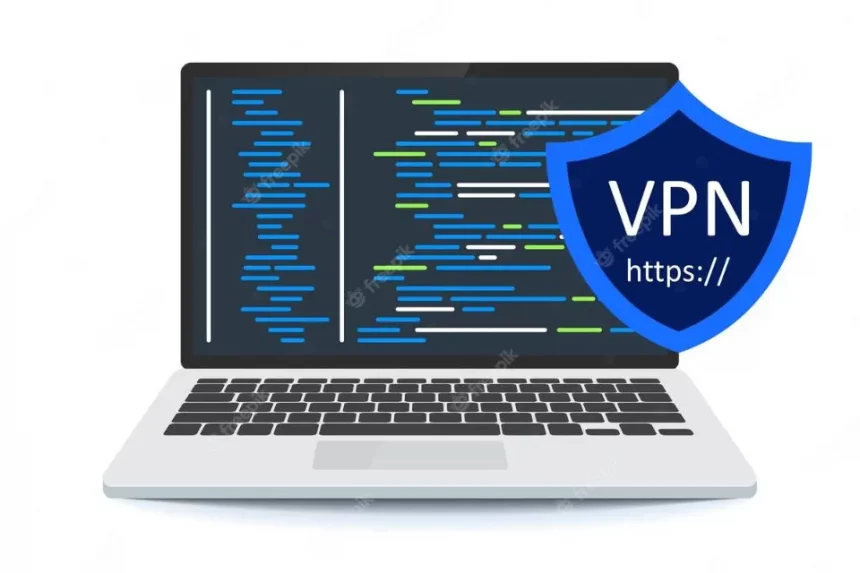Setting up a secure and reliable VPN on your PC is easy and essential. A VPN (Virtual Private Network) is a powerful tool that allows you to create a secure, encrypted connection between your computer and the internet, protecting your data and your privacy. With a VPN, you can access content from anywhere in the world, bypass restrictions and censorship, and keep your personal information safe from hackers and other malicious actors. In this article, we’ll walk you through the steps to set up a secure and reliable VPN for your PC. We’ll cover everything from choosing a VPN provider to making sure your connection is secure. By the end of this article, you’ll be able to surf the web with confidence, knowing that your data and privacy are safe.
Setting up a secure and reliable VPN on your PC is easy and essential. A VPN (Virtual Private Network) is a powerful tool that allows you to create a secure, encrypted connection between your computer and the internet, protecting your data and your privacy. With a VPN, you can access content from anywhere in the world, bypass restrictions and censorship, and keep your personal information safe from hackers and other malicious actors. In this article, we’ll walk you through the steps to set up a secure and reliable VPN for your PC. We’ll cover everything from choosing a VPN provider to making sure your connection is secure. By the end of this article, you’ll be able to surf the web with confidence, knowing that your data and privacy are safe.
What is a VPN and why is it important?
A VPN is a tool that allows you to create a secure, encrypted connection between your computer and the internet. This connection is called a “tunnel” and it prevents third parties from intercepting your data. It also allows you to access content from anywhere in the world, bypass restrictions and censorship, and keep your personal information safe from hackers and other malicious actors.
When you use a VPN, your internet traffic is routed through a secure connection that is encrypted to ensure your data is kept private. This means that anyone trying to intercept your data will be unable to do so, as it is encrypted and inaccessible. A VPN also helps to protect your privacy, as it masks your IP address and prevents websites from tracking your browsing activity.
Using a VPN is especially important when you are using public wifi networks. Public wifi networks are often unsecured, meaning that anyone on the same network can easily intercept your data. With a VPN, your data is kept safe and secure, even on public wifi networks.
Choosing a VPN provider – features and services to consider
When choosing a VPN provider, there are several factors you should consider. First, you should look for a provider that offers strong security and encryption protocols, such as OpenVPN or L2TP/IPSec. These protocols ensure that your data is kept safe and secure.
You should also make sure the provider has a good reputation and offers good customer service. This will ensure that you can get help quickly if you encounter any problems. Additionally, look for a provider that offers a wide range of servers and locations, as this will give you more options for accessing content from around the world.
Finally, you should look for a provider that offers a money-back guarantee. This will ensure that you can get a refund if you are not satisfied with the service.
Setting up a VPN on your PC – step by step guide
Once you have chosen a VPN provider, you can set up the VPN on your PC. The process is usually quite simple and can usually be completed in a few steps.
Step 1: Download the VPN software.
The first step is to download the VPN software from the provider’s website. This should be a simple process and should only take a few minutes. Once the software is downloaded, install it on your PC.
Step 2: Log in to the VPN.
Once the software is installed, you will need to log in to the VPN using the credentials provided by your provider. This is usually a simple process, but if you have any questions, you can contact your provider’s customer service for assistance.
Step 3: Connect to a server.
Once you are logged in, you can connect to a server. You can usually choose from a range of servers located in different countries. Choose a server that is close to your location for the best connection speed.
Step 4: Start browsing securely.
Once you are connected to a server, you can start browsing the web securely. You can now access content from around the world, bypass restrictions, and keep your data and privacy safe.
Ensuring your VPN is secure – encryption and VPN protocols
Once you have set up your VPN, you should make sure that it is secure. This can be done by ensuring that your connection is encrypted and that you are using a reliable VPN protocol.
Encryption is the process of encoding data so that it can only be read by the intended recipient. When you use a VPN, your data is encrypted so that it is unreadable to anyone who intercepts it. The most common encryption protocols are OpenVPN and L2TP/IPSec. These protocols are reliable and secure, and should be used whenever possible.
In addition to encryption, you should also make sure that you are using a reliable VPN protocol. The most common protocols are PPTP, L2TP/IPSec, and OpenVPN. Each protocol has its own advantages and disadvantages, so it is important to choose the one that best suits your needs.
Troubleshooting tips for VPN connections
If you encounter any issues while using your VPN, there are a few troubleshooting tips you can try.
First, make sure that your VPN connection is secure. Check that your connection is encrypted and that you are using a reliable VPN protocol.
Second, check that your VPN is connected to the correct server. If you are having trouble connecting to a certain server, try connecting to another one.
Third, check your internet connection. If your connection is slow or unreliable, it could be causing your VPN problems.
Finally, contact your VPN provider for assistance. Most providers have customer service teams who can help you troubleshoot any issues you may be having.
Advantages of using a VPN
Using a VPN offers several advantages. It allows you to access content from anywhere in the world, bypass restrictions and censorship, and keep your personal information safe from hackers and other malicious actors. It also helps to protect your privacy, as it masks your IP address and prevents websites from tracking your browsing activity. Finally, it can help you save money, as a VPN can help you access cheaper deals and discounts.
Best VPN services for PC
When looking for the best VPN services for PC, there are several factors to consider. First, make sure that the service offers strong security and encryption protocols, such as OpenVPN or L2TP/IPSec. Second, look for a provider that offers a wide range of servers and locations, as this will give you more options for accessing content from around the world. Third, make sure the provider has a good reputation and offers good customer service. Finally, look for a provider that offers a money-back guarantee.
Some of the best VPN services for PC include NordVPN, ExpressVPN, CyberGhost, and Private Internet Access. All of these providers offer strong security, a wide range of servers, and good customer service.
How to select the right VPN for your needs
When selecting a VPN for your PC, it is important to choose one that meets your needs. First, consider your budget. If you are on a tight budget, look for a provider that offers a free trial or money-back guarantee. Second, consider the features you need. If you need to access specific content, make sure the provider offers servers in that location. Third, consider the type of encryption and protocols offered. Finally, consider the customer service offered by the provider.
Common mistakes to avoid when setting up a VPN
Setting up a VPN on your PC is a simple process, but there are a few common mistakes to avoid. First, make sure that you are using a reliable VPN protocol. This will ensure that your data is kept secure. Second, make sure that your connection is encrypted. This will prevent third parties from intercepting your data. Third, make sure you are connected to the correct server. If you are having trouble connecting to a certain server, try connecting to another one. Finally, make sure your internet connection is stable. If your connection is slow or unreliable, it could cause problems with your VPN.
Conclusion
Using a VPN is essential for keeping your data and privacy safe when surfing the web. It allows you to access content from anywhere in the world, bypass restrictions and censorship, and keep your personal information safe from hackers and other malicious actors. Setting up a secure and reliable VPN on your PC is easy, and by following the steps outlined in this article, you can be sure that your data and privacy are kept safe.



